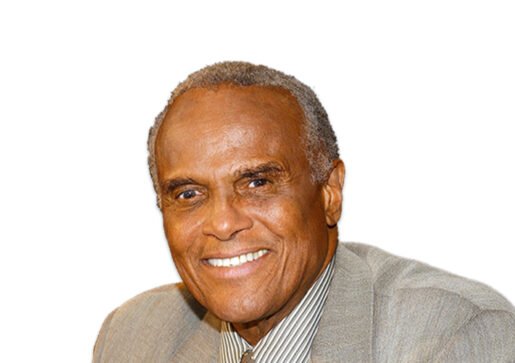If there’s a way to describe Harry Belafonte and his impact on the world as an entertainer and a civil rights activist, it might be: “he was for real.”
His talent and charisma on screen and stage, were genuine and unquestionable while his lifelong commitment to the upliftment of Black people around the world was valid and, also unquestionable.
Belafonte died of congestive heart failure at his home in Upper Westside Manhattan on Tuesday, April 25 at the age of 96.
He leaves a legacy of authenticity in a body of work on screen and stage that included 15 major films and countless television and theatre appearances that placed him among a handful of performers to have attained what’s referred to as the EGOT, having received an Emmy, three Grammys, an Oscar and a Tony Award.
Among the films in which he is memorialized are Island in the Sun, Kansas City, Uptown Saturday Night, White Man’s Burden, and Spike Lee’s BlacKKKlansman.
As a musician he recorded at least 30 studio albums and eight live albums and his seminal album, “Calypso” released in 1956 and introduced the genre to American audiences, became the first LP to sell a million copies in less than a year.
Today, the album which included hits such as “The Banana Boat Song (Day-O)” and “Jamaica Farewell” remains as number four on Billboard’s “Top 100 Album,” list.
Belafonte also popularized Trinidad and Tobago’s Lord Melody’s Mama Look A Boo-Boo, which became his second biggest selling hit as well as the popular Caribbean folk song Matilda.
Many of his calypso hits came from his collaboration with the iconic songwriter and calypsonian, Irving Burgie, who traces his heritage to Barbados.
In the face of his success as a performer and movie star, Belafonte who was born in Harlem to a working-class family, his father from Martinique and mother from Jamaica, was drawn towards the cause of civil rights and social justice, which defined much of his life.
As a friend and confidant to Dr. Martin Luther King Jr., Belafonte invested fully in the cause. The relationship also shaped his career.
He walked away from film roles that were what he deemed to be stereotypical and degrading to Blacks and as a performer, he refused to perform in the American South from the mid-1950s to the early 1960s and was blacklisted during the McCarty era
Belafonte was proud of being in a position to use significant chunks of his earnings to bankroll the civil rights movement in the 1950s and 60s including providing for Dr. King and his family before and after the iconic civil rights leader death.
His money also went towards bailing out activists from jail on countless occasions, during the civil rights marches and protests. He also provided the early funding for the Student Nonviolent Coordinating Committee.
His advocacy and civil rights commitment continued over the decades and placed him in direct conflict with several US presidents like George W. Bush and Donald Trump as well famed political leader, Colin Powell as well as US foreign policies on Africa, Caribbean and Cuba.
Well into his 80s and 90s, Belafointe remained on the frontlines stomping for Black Lives Matter, The Occupy Movement as well as manifestations against police killings of Blacks.
He was also consumed by his humanitarian work, which also extended way beyond the US border, championing causes in Senegal, Kenya, Rwanda and all of Africa’s children.
He was the driving force behind “We Are The World,” the Grammy-winning song that raised more than $60 million for Africa.
He played a significant role in getting Rap and Hip Hop music incorporated in Cuba’s musical culture by meeting with President Fidel Castro and advocating on its behalf.
He used his money and influence to assist South African music icons Hugh Masekela and Mariam Makeba establish successful musical careers.
Belafonte was born Harold Bellanfanti and raised in a cramped apartment in Harlem with his Jamaica born mother, Melvin a domestic servant and his Martinique born father, Harold a cook.
His father left when Harry was six and his mother took him to live with his grandmother in Jamaica between 1932 and 1940. He attended Woolmer Elementary School.
He returned to the States and attended George Washington High for short while before dropping out and serving in the US Navy during WWII.
By chance he attended a show at the American Negro Theatre, when met lifelong friend Sydney Portier and fell in love with the performing arts.
For his achievements and contributions he has been honored with numerous awards and recognitions including Jean Hersholt Humanitarian Award given to him by the Academy of Motion Picture Arts and Sciences in 2014 in recognition of his lifelong fight for civil rights, social justice and other causes.
Nothing more fitting for Harry Belafonte, a giant of a man.














